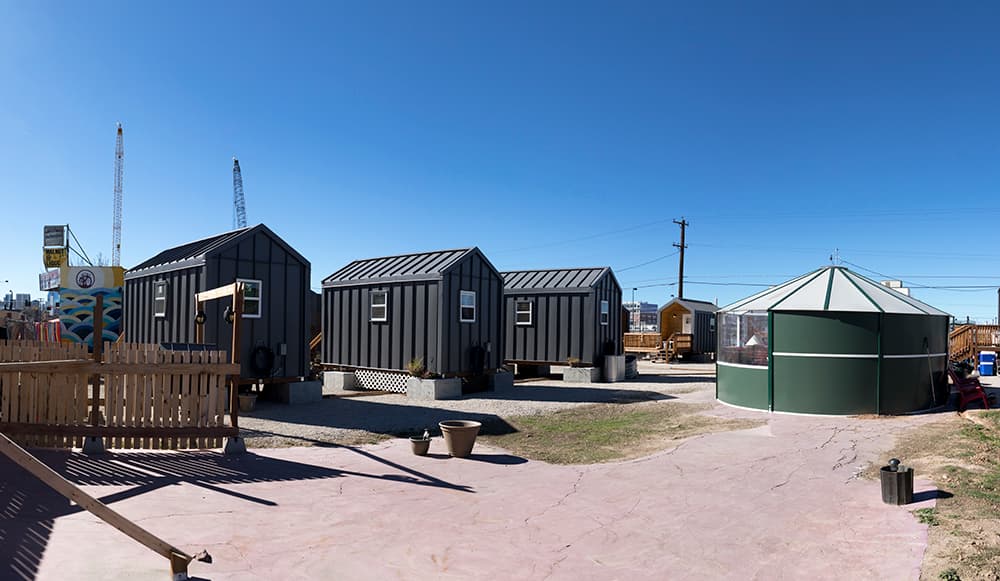The city is offering a plot of land in Globeville for a community of tiny houses for people who have experienced homelessness.
The announcement Thursday came after Denver’s public works department said in November that the plot at the Taxi development where Beloved Community Village had hoped to move was inappropriate, citing flood concerns. The Colorado Village Collaborative and other organizers need to find a new site soon because the plot near the 38th and Blake light-rail station where the 11 tiny homes have sat for more than a year is slated for the development of affordable housing.
Cole Chandler, a Colorado Village Collaborative organizer, said he was excited by the offer of a vacant lot at 4400 N. Pearl Street and pleased with the city’s efforts. He added that residents of the tiny homes were happy the new site was just a half mile from their current location. But he said a few hurdles still need to be overcome.
Denver City Council must approve the proposal to lease the land to Colorado Village Collaborative for about $10 a year. If approved, the lease would have an initial term of one year, with options to renew for up to four years. The lease will be reviewed by the council’s Finance and Governance Committee on Tuesday. The city has scheduled a community meeting Feb. 7, then the full council will vote on the lease on Feb. 19.
Chandler said he expected the Globeville neighborhood meeting “could be hard. Neighborhood meetings are often hard.”
He said he had had some preliminary meetings with neighbors and that the next mission was to show City Council that the village is supported in the area and the idea embraced across the city.
“Our hope is that the residents of the village will become part of the Globeville neighborhood,” he said.
Twelve people, 11 of them working or in school, live at the current Beloved Community Village. Four residents have moved into permanent housing from the village.
If the deal goes through, Colorado Village Collaborative plans at a later stage to add a community block with a full kitchen, bathrooms and plumbing. The current village relies on portable toilets and a bath house supplied with water from a 300-gallon tank. Nine more homes could also be added later.
“It’s definitely not a done deal,” Chandler said. “We have lost land before and we are definitely not counting it until we see it go all the way through.”
In addition to Public Works stopping the Taxi plan, last July the city’s Landmark Preservation Commission derailed plans to build a different tiny home village intended for women experiencing homelessness in the parking lot of the St. Andrew’s Episcopal Church campus. The congregation had supported the proposal to host eight temporary homes and two support buildings. But because the church is in a historic district — Clements, near downtown — the proposal required approval from Landmark, which found no historical precedent for it.













